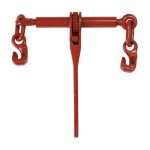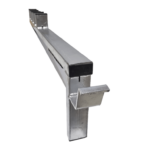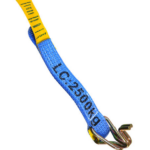Cash flow is the lifeblood of any business, and this is especially true for transport companies. With high operational costs, fluctuations in fuel prices, and seasonal demand changes, transport companies must carefully manage their cash flow to maintain financial stability and avoid cash flow crises.
Here are some tips for managing cash flow in a transport company:
Forecasting Revenue and Expenses: Accurately forecasting revenue and expenses is critical for managing cash flow. Transport companies should have a clear understanding of their fixed costs, such as lease payments, insurance, and salaries, as well as variable costs, such as fuel and maintenance expenses. They should also have a realistic forecast of their revenue streams, including contracts, seasonal demand changes, and market trends. By creating a budget and regularly monitoring their actual revenue and expenses against it, transport companies can identify potential cash flow issues early on and take action to address them.

Managing Accounts Receivable and Payable: In the transport industry, delays in payment from clients can create significant cash flow challenges. Transport companies should have clear payment terms and processes in place for their clients, including invoicing and follow-up procedures. They should also regularly review their accounts receivable and work to collect outstanding payments promptly. On the other hand, transport companies should negotiate favorable payment terms with their suppliers and vendors, such as extended payment periods or discounts for early payment, to improve their cash flow.
Accessing Working Capital: Transport companies may need to access working capital to cover expenses during slow periods or unexpected emergencies. They can do this through various means, such as lines of credit, factoring, or asset-based lending. However, it is essential to carefully evaluate the costs and risks associated with each option and ensure that the financing aligns with the company’s long-term financial goals.
Improving Operational Efficiency: Improving operational efficiency can help transport companies optimize their resources and reduce costs, improving their cash flow. This could include investing in fuel-efficient vehicles, implementing route optimization software, or streamlining administrative processes. By reducing costs and improving productivity, transport companies can generate more cash flow and improve their profitability.

Monitoring Key Performance Indicators (KPIs): To effectively manage cash flow, transport companies should monitor key performance indicators such as revenue per kilometer, empty kilometers, and gross profit margin. By tracking these metrics, transport companies can identify trends, identify areas for improvement, and make informed decisions that positively impact their cash flow.
In conclusion, managing cash flow is critical for the success of transport companies. By forecasting revenue and expenses, managing accounts receivable and payable, accessing working capital, improving operational efficiency, and monitoring key performance indicators, transport companies can maintain financial stability and achieve long-term success.



































































































